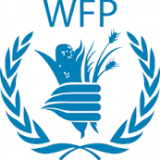World Food Programme has posted 1 jobs
The World Food Programme is the world's largest humanitarian agency fighting hunger worldwide.
WFP was first established in 1961[4] after the 1960 Food and Agricultural Organization (FAO) Conference, when George McGovern, director of the US Food for Peace Programmes, proposed establishing a multilateral food aid programme. The WFP was formally established in 1963 by the FAO and the United Nations General Assembly on a three-year experimental basis. In 1965, the programme was extended to a continuing basis.
Organization
The WFP is governed by an Executive Board which consists of representatives from 36 member states. Ertharin Cousin is the current Executive Director, appointed jointly by the UN Secretary General and the Director-General of the FAO for a five-year term. She heads the Secretariat of the WFP. The European Union is a permanent observer in the WFP and, as a major donor, participates in the work of its Executive Board.
Its vision is a "world in which every man, woman and child has access at all times to the food needed for an active and healthy life."
The WFP has a staff of about 11,500 people, the majority of whom work in remote areas.
Goals and strategies
United Nations C-130 Hercules transports deliver food to the Rumbak region of Sudan.
The WFP unloads humanitarian aid at the Freeport of Monrovia during Joint Task Force Liberia.
A WFP armored vehicle.
The WFP strives to eradicate hunger and malnutrition, with the ultimate goal in mind of eliminating the need for food aid itself.
The objectives that the WFP hopes to achieve are to:
"Save lives and protect livelihoods in emergencies"
"Support food security and nutrition and (re)build livelihoods in fragile settings and following emergencies"
"Reduce risk and enable people, communities and countries to meet their own food and nutrition needs"
"Reduce undernutrition and break the intergenerational cycle of hunger"
WFP food aid is also directed to fight micronutrient deficiencies, reduce child mortality, improve maternal health, and combat disease, including HIV and AIDS. Food-for-work programmes help promote environmental and economic stability and agricultural production.


